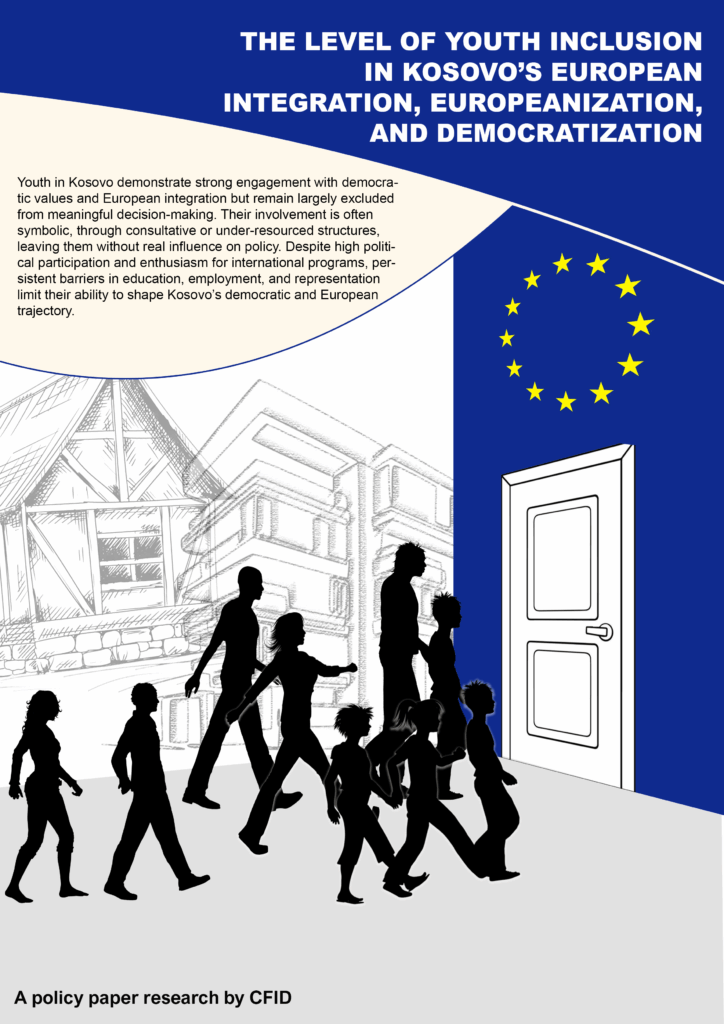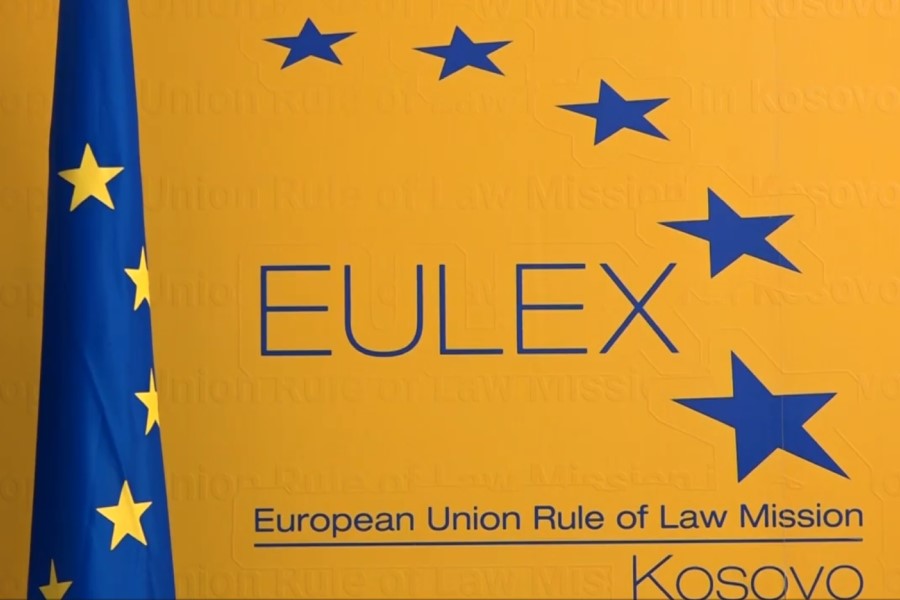
The study “The Level of Youth Inclusion in Kosovo’s European Integration, Europeanization, and Democratization”, conducted by the Center for Innovation and Development (CFID) within the framework of the project “Youth Engagement for the Europeanization of the Balkans”, provides an in-depth analysis of the current state of youth inclusion in Kosovo’s EU integration processes. Despite the existence of legal and strategic frameworks – such as the Law on Empowerment and Participation of Youth (2009), the National Youth Strategy 2019–2023, and the National Programme for European Integration 2024–2028 – implementation remains weak, while youth participation is often more symbolic than substantive.
The research highlights several critical challenges: low institutional representation, mismatch between education and labor market needs, high unemployment fueling emigration, and the exclusion of marginalized groups such as Roma, Ashkali, Egyptian, rural, and disabled youth. Yet, the report also emphasizes the positive energy of Kosovo’s young generation, which shows strong willingness to engage when meaningful opportunities are provided – from high electoral turnout to the success of initiatives such as Erasmus+ and K-GenU.
The study argues that meaningful youth inclusion is not only a democratic requirement but also a fundamental condition for accelerating Kosovo’s path toward the European Union. Its recommendations aim to strengthen institutional mechanisms, empower youth organizations, and build a system in which young people are not only heard but also hold real influence over the country’s European future.
This research was conducted within the framework of the project “Youth Engagement for the Europeanization of the Balkans”, implemented by the BIRC Institute from North Macedonia, NGO GLAS from Montenegro, and CFID from Kosovo*, and supported by the Western Balkans Fund with co-financing from the European Union.
This publication has been produced with the financial assistance of the Western Balkans Fund and European Union.
The contents of this publication are the sole responsibility of the beneficiary CFID and can in no way be taken to reflect the views of the European Union and Western Balkans Fund.
Click here to read the study



